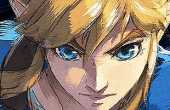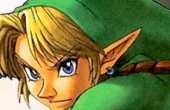alexbolano92
Contributing writer for The Artifice.
Contributor I
- Lurker
- Sharp-Eyed Citizen
- ?
- Articles
2 - Featured
2 - Comments
7
- Ext. Comments
6 - Processed
10 - Revisions
5
- Topics
2 - Topics Taken
0 - Notes
4
- Topics Proc.
5 - Topics Rev.
2
- Points
460 - Rank
X - Score
224
Latest Articles
Latest Topics
The Legend of Zelda and Aristotelian Virtue EthicsEven casual fans of Zelda have heard of the triforce. The mystic golden triangles, left behind by the 3 goddesses after their divine act of creation, each represent a particular character trait, power, wisdom, and courage. The bearer of each piece of the triforce is said to personify the character traits that each piece represent. In addition, complete balance and mastery of the triforce requires one to have all three pieces at the same time. Without all three pieces at the same time, a person's soul is out of balance. In a lot of ways, this characterization of the triforce shares similarities with Aristotle's virtue ethics. Aristotle wrote that in order for a person to reach eudaimonia (sometimes translated as 'flourishing' or 'happiness') they must have the proper balance of the different virtues, such as courage, wisdom, temperance, and justice. Aristotles ethics would provide a unique lens to analyze the different character in the Legend of Zelda and how the embody their respective virtues . Link obviously embodies courage, and its easy to see why. Link consistently takes on monsters 3 times his size, is motivated solely by justice, and is steadfast in his duty. An article examining the major characters of the series through the view of virtue ethics would be a neat take on the series.
|
Cosmology and Metaphysics in Fiction: Liberatory or Constraining?The inspiration for this post came from an interview that I read recently with Kentaro Miura, the creator of the manga series Berserk. Miura is commenting on a particular chapter of the manga that he explicitly omitted from the tankoban collections. The chapter in question involves one of the characters encountering and conversing with the "Idea of Evil", or the Berserk universe's analog of God. When asked why he omitted that chapter, Miura said that by introducing 'God' he had 'given away' too much information about how the universe that Berserk takes place in operates. Miura said he wanted to give just enough information about how the Berserk universe is situated, as he felt that too much detail would constrain possible future developments of the story. Now, in a lot of fiction and fantasy, authors put a ton of effort into creating the cosmologies and underlying metaphysics of their fictional universes. Tolkein has an entire mythos about the creation of the world and a metaphysics about the structure of reality for his Lord of the Rings series, and many sci-fi authors ( I am thinking of Orson Scott Card and his universe of 'philotes' as an example) create a cosmological background in which their stories take place. I find myself wondering if Miura's worry is a legitimate one: does the construction of these fantastically elaborate cosmological systems in fiction ultimately constrain the possible development of said fiction? At first glance I may think so. Authors who have created these elaborate systems may feel pressure to conform every detail of their story to fit that system, and ultimately limit the kinds of events, processes, or entities that the author would feel comfortable putting into the story. Sometimes, an otherwise unspecified explanation of an event may suit the story just fine. On the other hand, having theses complex mythologies in place does give an element of consistency and realism to the fictional universe that would otherwise be absent.
|
Latest Comments
| Philosophy in Anime | |
Buckley was a snake and a vile rhetorician. For too long he had a national platform to spread his jingoist bullshit. May history be forever unkind to Buckley; let us remember him for the morally repugnant man he was. | William F. Buckley, Jr. and Firing Line: Posturing over Pragmatic Politics |
Great article, I never even considered how storied the history of subtitling in film must be. Its one of those things a lot of people take for granted, so thanks for drawing attention to an under appreciated and necessary enterprise! | Subtitling for Cinema: A Brief History |
I was originally considering FF7 for the list, specifically its views on environmental ethics. But ultimately, I feel as if the game did not fully elevate that issue to one of the central themes of the game. | Video Games That Ask Deep Philosophical Questions |
Personally, I enjoyed the factional morality system of Dragon Age: Origins. No action is either strictly good or bad, but each action generates approval or disapproval with other characters, depending on their personalities and moral views. This mechanic added a level of depth to the choice mechanic, as there is no way to make everyone happy, and everyone has good reasons for holding the opinions that they do. Some games that work with a decision mechanic present laughable extremes as the only options available. DAO makes things more nuanced by giving more dynamic responses to your actions. | Video Games and Morality: The Question of Choice |
I think one of the reasons why Goku is such an iconic character is that he is the archetypal hero. Goku is a person who is fully motivated to ideals and he refuses to compromise. He is immensely strong, yet compassionate, and he shows a good balance of character virtues. He has a immutable sense of justice and he is always capable of making the right decision. All of the Z-fighters play a unique role, but Goku is the one that allows the group to become more than just the sum of its parts. One of his greatest powers is that allows others to reach their full potential. Goku is the personification of the virtuous hero, and that is what makes him such a appealing protagonist. | Dragon Ball: Why is it Still Endearing to People Everywhere? |
This is a good article. I like how you went in depth in to each character and which values they represent. One thing though; I would not consider Makashima philosophy as virtue ethics. He is very clear that what he cares about is the free decision of the will, not acting from certain motivations or character traits. In that sense, I would consider Makashim as a kind of existentialist. The only thing that matters for him is the free exercise of the will to act against rationality and nature. He even says it himself, there is no way for someone’s action to be good or bad unless that action is the product of the unconstrained human will. I think Makashima would agree with Sartre that humans are radically free. | Psycho-Pass: The Ethics of an "Ideal" Society |


Good stuff, I love seeing modern anime that incorporates philosophical themes. I never would have thought to connect Adam Smith’s idea of competition to One Piece, so good eye!
I also think Psycho-Pass is another great anime that explores philosophical themes, mostly related to politics, ethics, and free will.